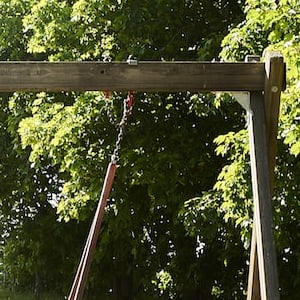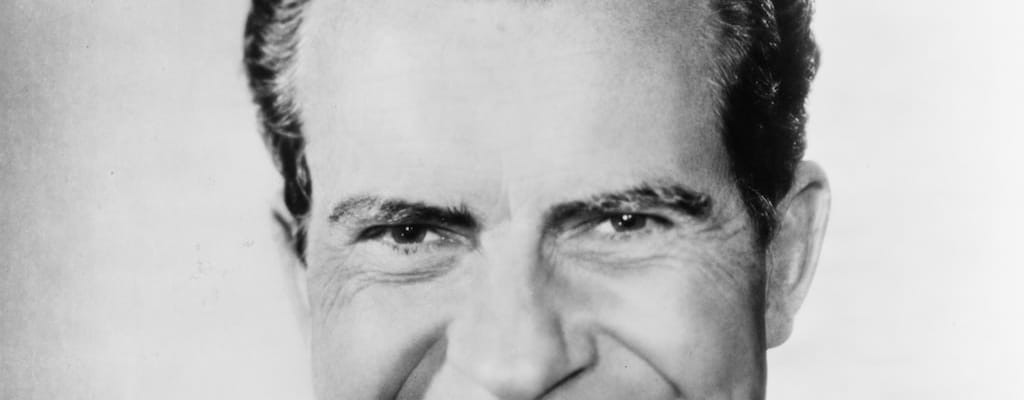swing round the circle: Idiom Meaning and Origin
What does ‘swing round the circle’ mean?
The idiom "swing round the circle" means to go through or visit a series of locations or events in a circular or repetitive manner.

Idiom Explorer
When someone talks in circles, they repeatedly say or explain the same thing, often using confusing or vague language, without making any clear or decisive points.
The idiom "take for a spin" means to test or try out something, usually a vehicle or a new product, by taking it on a short journey or using it for a short period of time.
The idiom "take a turn for the better" means to improve or become more positive, typically after a period of difficulty or negativity.
The idiom "take a turn" means to change direction or course, often unexpectedly or without prior planning. It can also refer to undergoing a transformation or experiencing a shift in circumstances. This phrase is commonly used in both literal and figurative contexts.
The idiom "swing through" means to visit a place or make a brief stop while traveling from one destination to another. It implies a casual or quick visit without spending much time or effort.
The idiom "swing of things" refers to becoming accustomed to a new situation or getting back into the groove of something after a period of being away or unfamiliar with it.
The idiom 'swing for the fences' means to take a big risk or aim for a great success, often by putting in a lot of effort. It is derived from baseball, where hitting a home run by swinging hard and aiming for the farthest part of the field is considered a great achievement.
The idiom "swing and a miss" refers to a failed attempt or effort to do something successfully.
The idiom "square peg in a round hole" is used to describe a person or thing that is unsuitable or does not fit well in a particular situation or environment.
The idiom "spin one's wheels" means to exert a lot of effort or energy without making any progress or achieving any result.
Curious Origins of *Swing Circle*
The idiom "go round in circles" is related to swing round the circle. It conveys a similar idea of repetitive and unproductive motion. When someone is going round in circles, they are engaged in actions or discussions that do not lead to any progress or resolution. It's like being stuck in a loop, where the same issues or problems keep resurfacing without any forward movement. This idiom can be used to describe not only political situations, but also any scenario where there is a lack of direction or effective action.
Another related idiom is "swing through," which also has a connection to swing round the circle. "Swing through" refers to the act of traveling or moving through a specific region or area. It implies a sense of momentum and purpose, as if someone is making swift progress or covering a large territory. In the context of politics, "swing through" can refer to a politician touring different regions to engage with voters and gain support. This parallel between swing round the circle and "swing through" highlights the contrasts between unproductive repetition and purposeful movement.
Swing round the circle, as an idiom, originated during the late 19th century presidential campaign of Rutherford B. Hayes in 1876. This phrase captures the practice of a politician embarking on a nationwide tour to give speeches and campaign for support. Hayes' campaign tour was extensive, with him traveling to various states to directly connect with voters. The idiom gained prominence during Hayes' campaign, particularly during the "Swing Around the Circle" tour, which aimed to rally support for Hayes and the Republican Party.
The Swing Around the Circle tour became a significant event that marked a turning point in Hayes' campaign. However, instead of rallying support, the tour turned into a disaster. It was marred by controversy, hostility, Democratic opposition, heckling, and even physical assault of Hayes in some instances. The tour not only showcased deep divisions within the country but also highlighted the turbulent and polarized political climate at that time.
Although swing round the circle originated in the political arena, its use has since expanded beyond that context. It has become a widely used idiom to describe repetitive or circular motions, futile or ineffective efforts, and lack of progress or achievement. The phrase implies going in circles without making any substantial headway or reaching the desired outcome.
When we invoke the idiom swing round the circle, we conjure images of political campaigns, public speeches, and the challenges faced by politicians in their pursuit of public support. It serves as a reminder of the complex nature of democratic processes and the difficulties inherent in trying to win over a diverse and sometimes divided electorate.
"Go round in circles" further emphasizes the idea of repetitiveness and lack of progress. It suggests a state of being stuck or caught in a cycle of unproductive and monotonous actions or discussions. This idiom can apply not only to politics but also to any situation where there is a lack of direction or effective problem-solving.
Similarly, "swing through" conveys a sense of purposeful movement and progress. It implies actively and swiftly moving through different regions or areas. In the political realm, "swing through" can denote a politician's strategic tour of various locations to reach out to voters and gain support. This parallel between swing round the circle and "swing through" draws attention to the contrasting notions of unproductive repetition versus purposeful action.
All in all, swing round the circle is an idiom deeply rooted in American political history. Its origins can be traced back to Rutherford B. Hayes' presidential campaign in the late 19th century. While it emerged from a specific event, its usage has expanded to convey broader concepts of repetition, futility, and lack of progress. This idiom reminds us of the challenges and frustrations often encountered in political endeavors, highlighting the dynamic nature of democracy and the opportunities it presents for growth and change.
Example usage
Examples of how the idiom "swing round the circle" can be used in a sentence:
- During the political campaign, the candidate decided to swing round the circle to personally meet voters in different states.
- The company's CEO plans to swing round the circle to visit all their branches across the country.
- In an effort to gather feedback and opinions, the team decided to swing round the circle by holding meetings with representatives from various departments.
More "Politics" idioms



